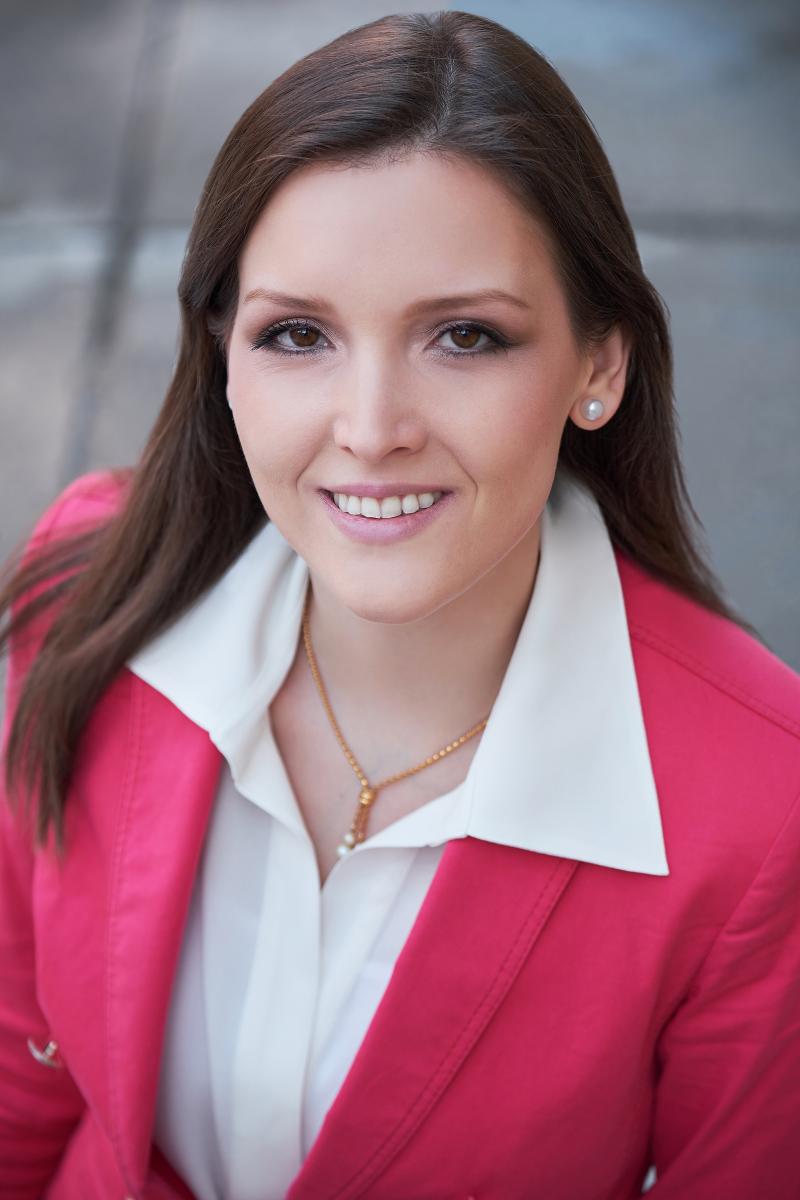Dr. Jelena Diakonikolas MS’12 PhD’16 Receives Morton B. Friedman Memorial Prize for Excellence
Jelena Diakonikolas (nee Marasevic) MS’12 PhD’16, an electrical engineer who contributed to groundbreaking research in full-duplex wireless technology while earning her masters and doctorate from Columbia Engineering, received the School’s Morton B. Friedman Memorial Prize for Excellence at Class Day May 15.

Named after the beloved professor and senior vice dean who was an integral part of Columbia Engineering for nearly 60 years, the prize honors doctoral graduates who exemplify “Mort’s” legacy of academic excellence, visionary leadership, and outstanding promise for the future.
Originally from Serbia, Diakonikolas did her undergraduate work in Belgrade and came to Columbia in 2011 to pursue her passion for applying elegant mathematical theory to real-world communications and networking systems and, she adds, to follow in the footsteps of the legendary Mihajlo I. Pupin 1883, the Serbian-born scientist, inventor, and founder of the School’s Department of Electrical Engineering. On campus, she worked with her PhD advisor, Professor Gil Zussman, on the FlexICoN project developing full-duplex wireless technology to enable simultaneous transmission and reception on the same frequency channel, and with her co-advisor, Professor Cliff Stein, on applying algorithms to challenges in electrical engineering and beyond.
“Columbia gave me a lot of freedom and plenty of opportunities to pursue the problems aligned with my interests as well as the guidance that kept me from getting lost in my research,” she said. “I felt that any direction I wanted to grow in was available and because of that I feel complete now, like there isn’t anything missing in my skillset.”
For her thesis, Diakonikolas took on analytical and algorithmic problems that arise in wireless networks and systems. Collaborating with members of Professor Harish Krishnaswamy’s CoSMIC lab on full-duplex technology, she worked on implications including potential gains in data rates and algorithms to allocate wireless resources efficiently and fairly for all users, as well as helped develop a wireless full-duplex testbed for evaluating both hardware and algorithmic results. Her research earned her a Qualcomm Innovation Fellowship, alongside fellow PhD student Jin Zhou, and resulted in several invited papers.
During her first year at Columbia, she worked on developing the very first hands-on cellular networking lab, and shared a best educational paper award at the 2013 GENI Research and Educational Experiment Workshop. Diakonikolas also garnered a Jacob Millman Prize for excellence in teaching assistance from the electrical engineering department, and served as corporate chair of the Graduate Society of Women Engineers. In 2015 she was named among the MIT Electrical Engineering and Computer Science Rising Stars, and in 2016 among N2Women’s list of 10 Women in Networking/Communications That You Should Watch.
Now a postdoctoral associate at Boston University and a visiting scholar at MIT, Diakonikolas is currently working on computational approaches to large-scale optimization and network architectures and algorithms for datacenter interconnects. She returned to Morningside Heights to accept her prize and meet with members of Friedman’s family.
“There’s something about not only coming up with the right algorithms but also proving that they work,” she said. “Solving algorithmic problems requires a very special way of thinking, holding many ideas and small pieces in your mind that you try to connect and make work together. When all the pieces come together I get this deep feeling of happiness and excitement.”
Friedman, who founded the Division of Mathematical Methods, the precursor to the applied mathematics component of the Department of Applied Physics and Applied Mathematics, was longtime chair of the Department of Civil Engineering and Engineering Mechanics and of the University Senate Executive Committee. A 1978 recipient of the University’s Great Teacher Award, he served as associate dean, vice dean, and senior vice dean and helped shaped the School over the course of six decades.
